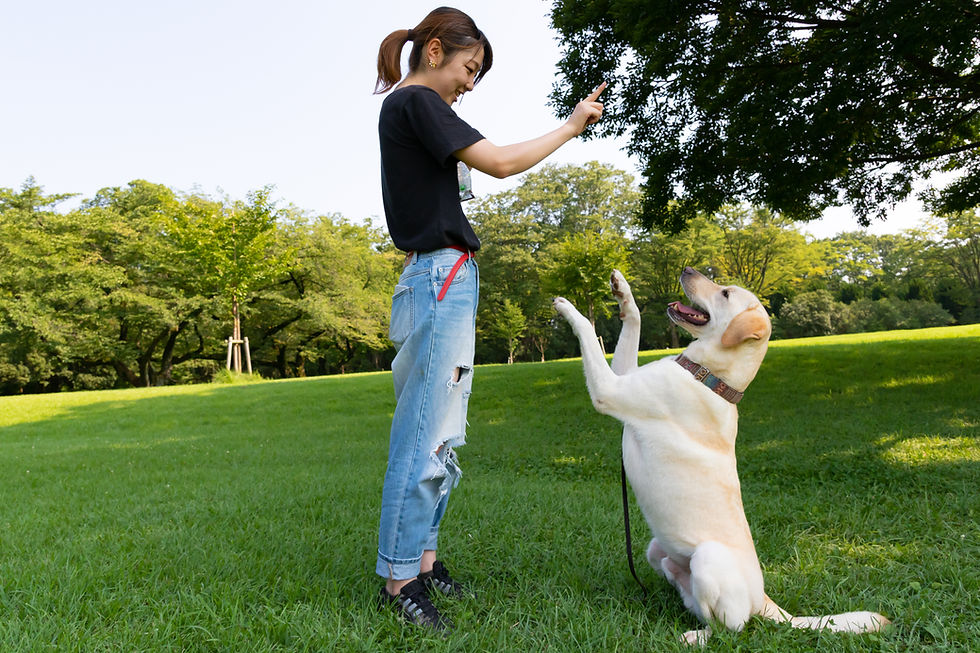3 Tips to Train Your Labrador Retriever for Hunting Season: Obedience, Retrieving Skills, and Waterfowl Exposure
- LC Hunting Labs

- Sep 8, 2024
- 3 min read
Updated: Nov 30, 2024
Training a young Labrador Retriever for their first hunting season can be a rewarding journey for both the dog and the owner. As you embark on this exciting adventure, it's crucial to lay a solid foundation in obedience, enhance their retrieving skills, and expose them to waterfowl or upland birds. This guide will provide you with practical insights on how to train your young hunting dog effectively.
Obedience Training

Establishing the Basics
Obedience is the cornerstone of a well-trained hunting dog. Start by teaching your young Labrador basic commands such as sit, stay, come, and heel. Consistency and positive reinforcement are key; reward good behavior with treats or verbal praise to reinforce their learning.
Field Training
Transition to field training by practicing commands in various outdoor environments. Use distractions like fluttering decoys to simulate real hunting scenarios. As your dog progresses, introduce off-leash training to improve their responsiveness and focus amidst distractions.
Advanced Commands
Advance to more complex commands like 'fetch,' 'drop it,' and 'leave it.' These commands are crucial for hunting scenarios, where your dog needs to retrieve game and follow your directions promptly.
Retrieving Skills
Building Retrieving Instinct
Labradors are natural retrievers, but honing this instinct is essential for hunting success. Start by playing fetch with soft toys or bumpers to encourage retrieving behavior. Gradually increase the distance and introduce various objects to retrieve.
Water Retrieves
Water retrieves are a vital skill for waterfowl hunting. Introduce your young Labrador to water gradually, starting with shallow areas and building their confidence. Use buoyant objects to simulate waterfowl and encourage retrieval in water environments.
Training Drills
Incorporate training drills like 'back casts' and 'blind retrieves' to enhance your dog's retrieving skills. These drills improve their ability to follow hand signals and retrieve game from diverse terrains.
Exposure to Waterfowl or Upland Birds

Controlled Exposure
Gradually introduce your young Labrador to waterfowl or upland birds in a controlled environment. Begin with scent training using bird wings or dummies to familiarize them with the game's scent.
Simulated Hunts
Simulate hunting scenarios by hiding bird scents or dummies in the field for your dog to find. This activity helps them associate the scent with the reward of retrieving, reinforcing their hunting instincts.
Field Practice
Transition to live hunts in designated areas to give your Labrador hands-on experience with waterfowl or upland birds. Supervise the hunts closely, providing guidance and positive reinforcement as they engage in hunting behaviors.
Training your young Labrador Retriever for the hunting season requires patience, dedication, and a structured approach. By focusing on obedience, retrieving skills, and exposure to waterfowl or upland birds, you can prepare your dog for a successful hunting experience. Remember to tailor the training to your dog's pace, celebrate their progress, and enjoy the bond that forms through this shared journey.
Whether you're a seasoned hunter or a dog lover embarking on a new adventure, training your Labrador Retriever for the hunt is a fulfilling experience that strengthens the bond between you and your furry companion. Best of luck as you prepare your young hunting dog for their first hunting season!
Remember, consistency and positive reinforcement are key to your dog's success in training!
I hope this guide provides you with valuable insights on how to train your young hunting companion for the upcoming season. Share your training experiences and successes with us in the comments below! Thank you for reading!



Comments